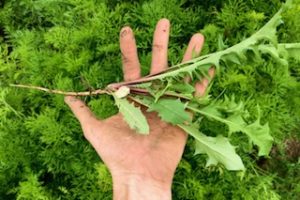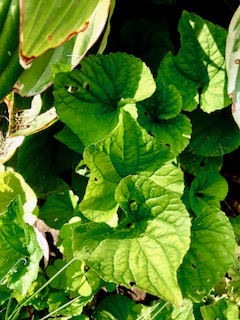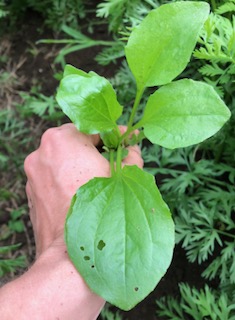 East Meets West in the Garden
East Meets West in the Garden
Each day, as I dig in my vegetable garden, weed out the perennials, or walk down the road, I see my “weed” friends and am reminded of the similarities of both Western and Chinese herbal medicine. Although many of the herbs used in Chinese herbal medicine are unique to that continent, or a specific geographical region, there are many genera of plants found both in China and North America that are used to treat similar disorders, for example, every time I see dandelion, violets and plantain I see my east and west plant friends.
Many are familiar with dandelion, Taraxicum officinale, but many don’t know it’s also a common herb in Chinese medicine. In Vermont this common weed can be seen frequently in lawns, along roadsides, and growing in our gardens. Many people eat the new leaves in spring either in a salad, steamed, or in a stir-fry. The flowers can be made into dandelion fritters, or dandelion wine. The roots are also a food source, and commonly used as a bitter digestive aid. Western herbal medicine uses all parts of the dandelion. The leaves are a diuretic and high in potassium, and the roots are used as a digestive bitter to promote the breakdown of fats and stimulate the digestive system. In Chinese medicine, the dandelion, or pu gong ying, is used to clear heat and relieve toxicity. It is frequently used for red, swollen and painful eyes, to dissipate nodules and reduce abscesses of the breast and intestine, to promote lactation, and it promotes urination for painful urinary dysfunction. Taxicum enters the Liver and Stomach channels. Chinese herbal medicine considers the fresh plant best for clearing heat and toxicity, and there are over 17 species used for medicinal purposes.
Violet (Viola sp.) is a common flower in the woodland understory, and in perennial beds. There are many different species of violet in our ecosystem, and careful identification is necessary to assure which violet(s) are available locally. Viola odorata, or sweet violet, is a beautiful and fragrant woodland species. It is used in Western herbalism as a cough remedy, to treat skin conditions, and urinary tract infections. Chinese herbal medicine uses Viola yedonesis or V. mandshurica, or zi hua da ding, to clear heat and relieve fire toxicity. It is used for reducing swelling of the eyes with redness, swollen painful throat and ears, mumps or snakebite. It is also used fresh topically and internally as a treatment of sores and abscesses. Chinese medicine usage is for treatment of the Heart and Liver channels. Both the leaves and flowers can be used as medicine, as a tea, or made into topical ointments.
Plantain, or Plantago major, is a very common plant in the Northeast. Western herbal medicine uses plantain as a gentle expectorant, which soothes inflamed and sore membranes. It is astringent and can treat diarrhea, hemorrhoids and cystitis accompanied by bleeding. Plantain is a wonderful topical herb, which can be used for cuts and bruises. Chinese herbal medicine recognizes Plantago asiatica or P. depressa, or che qian zi, as a commonly used medicinal herb. The seeds are used to drain dampness, promote urination and clear heat for painful urination, treat diarrhea, clear the eyes, and expel phlegm and stop cough. Plantago asicatica enters the Bladder, Kidney, Liver and Lung channels.
Although Western and Chinese herbal medicine developed over many thousands of years, and on different continents, many of the same genera of plants are recognized for their healing properties, and are used to treat similar presentations. As I dig in the gardens, I am constantly reminded of the healing power of plants. If you would like to learn more about how Chinese herbal medicine could work for you, please follow the link below to my website. And remember, always consult a licensed Chinese medicine practitioner, or clinical herbalist, before taking any herbal remedies. Although herbal medicine is generally considered a safe practice, incorrect usage or identification of herbs can have unwanted or serious side effects. Enjoy the summer, and I invite you to be curious about the wild food or medicine that is growing in your neighborhood.
Christina Ducharme, L.Ac., Blue Heron Acupuncture, LLC; Burlington, VT
Next Steps...
To schedule your visit to Blue Heron Acupuncture, LLC, please click on the "Book Appointment" button. After you have booked your appointment, and received an email confirmation, you will be able to "manage your appointment." Please complete the online forms before your first visit, or arrive 15 minutes early to complete your paperwork. We look forward to working with you.


